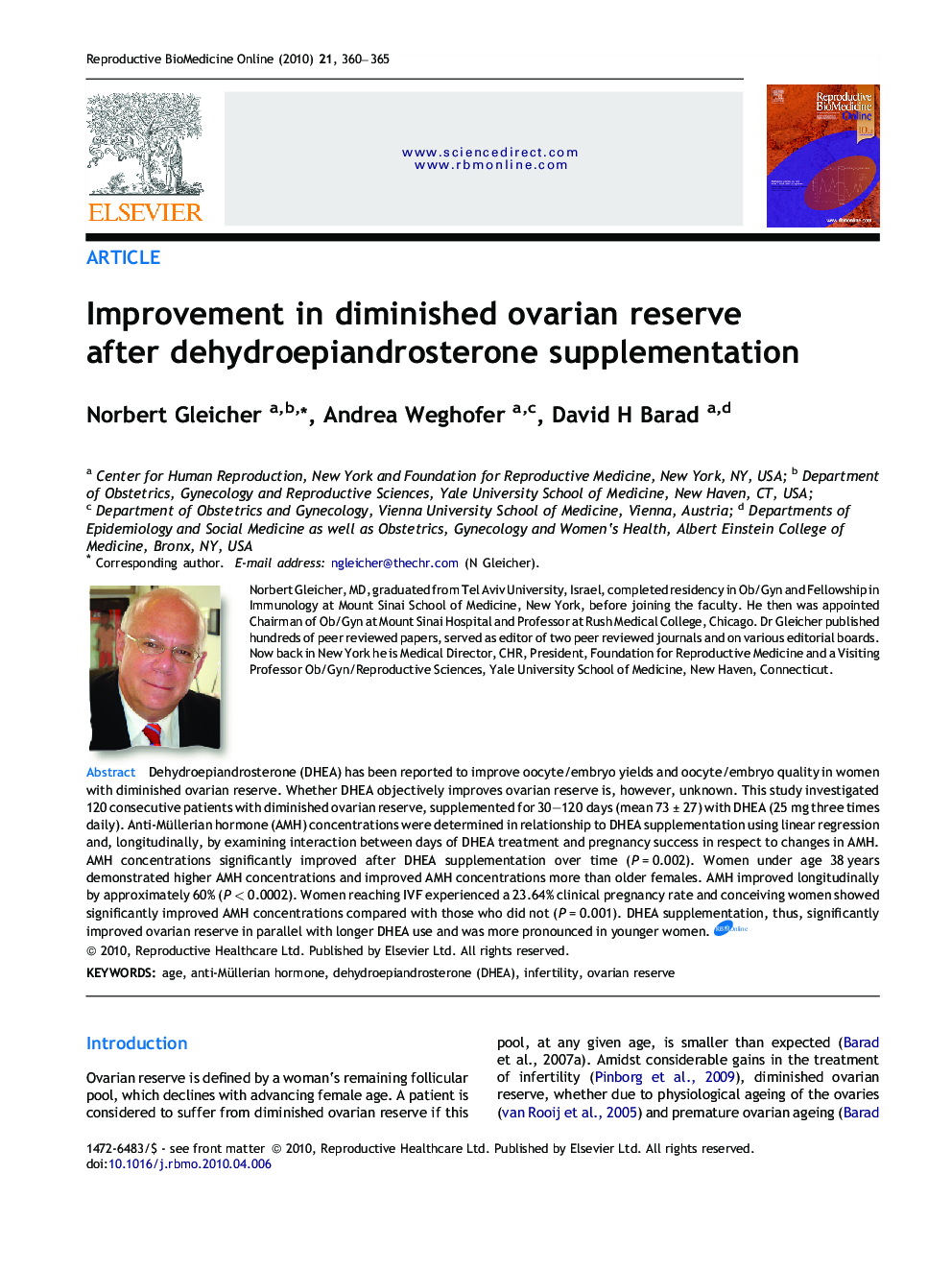| Article ID | Journal | Published Year | Pages | File Type |
|---|---|---|---|---|
| 3971515 | Reproductive BioMedicine Online | 2010 | 6 Pages |
Dehydroepiandrosterone (DHEA) has been reported to improve oocyte/embryo yields and oocyte/embryo quality in women with diminished ovarian reserve. Whether DHEA objectively improves ovarian reserve is, however, unknown. This study investigated 120 consecutive patients with diminished ovarian reserve, supplemented for 30–120 days (mean 73 ± 27) with DHEA (25 mg three times daily). Anti-Müllerian hormone (AMH) concentrations were determined in relationship to DHEA supplementation using linear regression and, longitudinally, by examining interaction between days of DHEA treatment and pregnancy success in respect to changes in AMH. AMH concentrations significantly improved after DHEA supplementation over time (P = 0.002). Women under age 38 years demonstrated higher AMH concentrations and improved AMH concentrations more than older females. AMH improved longitudinally by approximately 60% (P < 0.0002). Women reaching IVF experienced a 23.64% clinical pregnancy rate and conceiving women showed significantly improved AMH concentrations compared with those who did not (P = 0.001). DHEA supplementation, thus, significantly improved ovarian reserve in parallel with longer DHEA use and was more pronounced in younger women.
